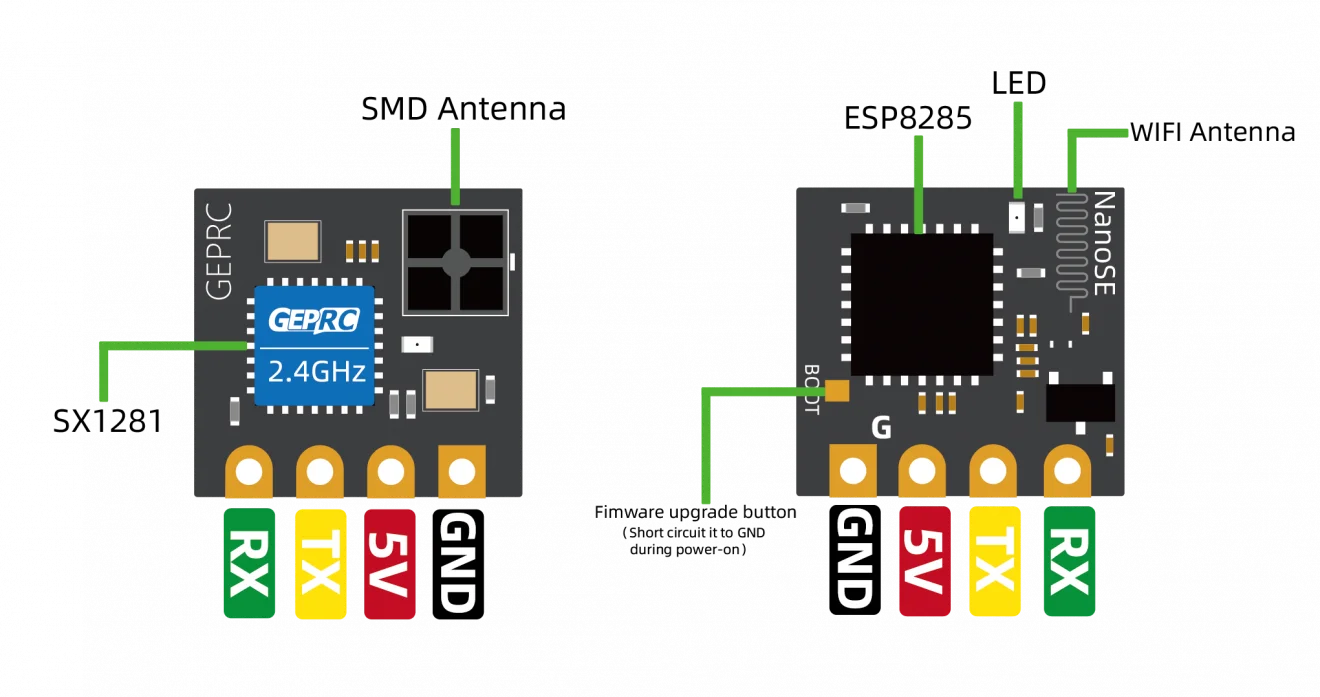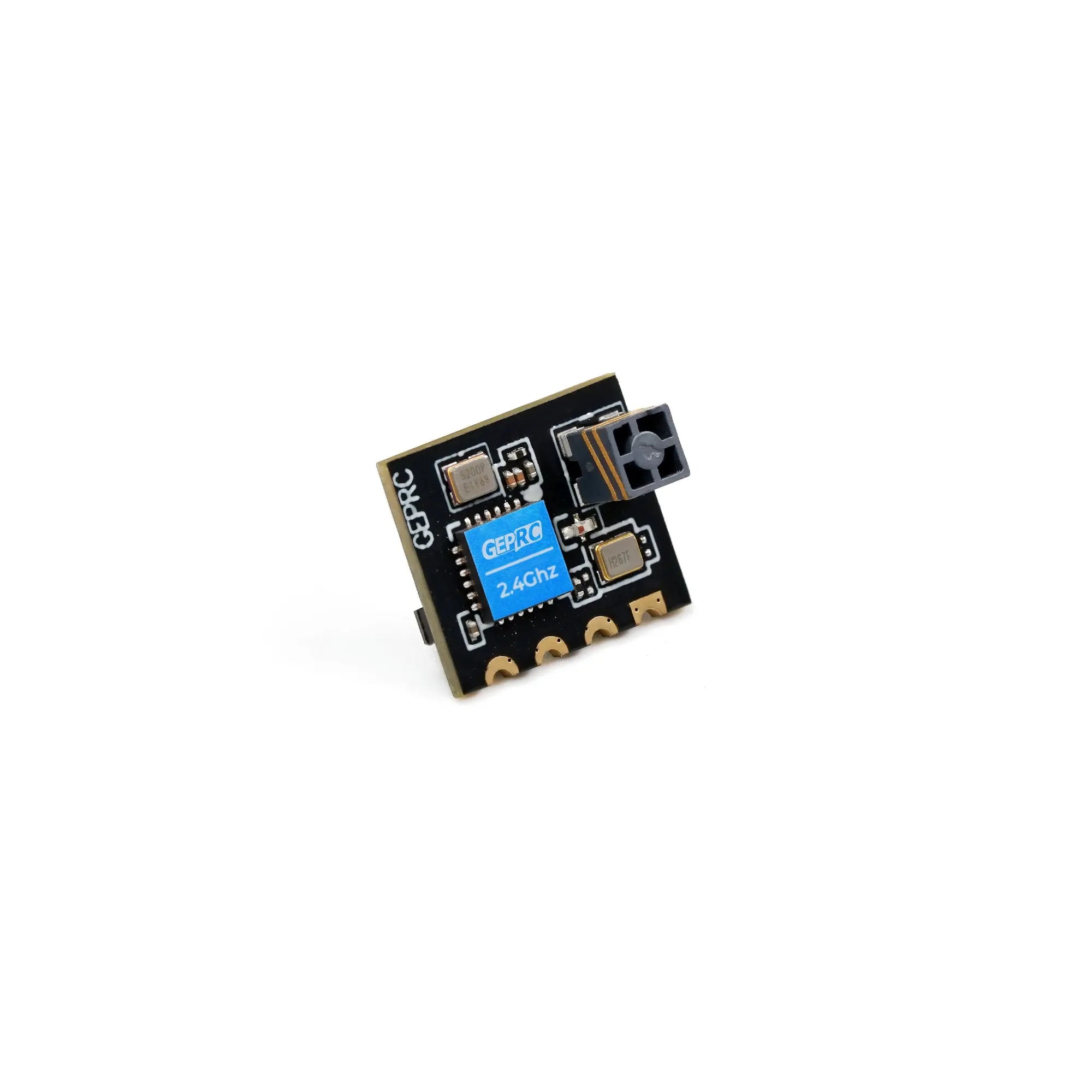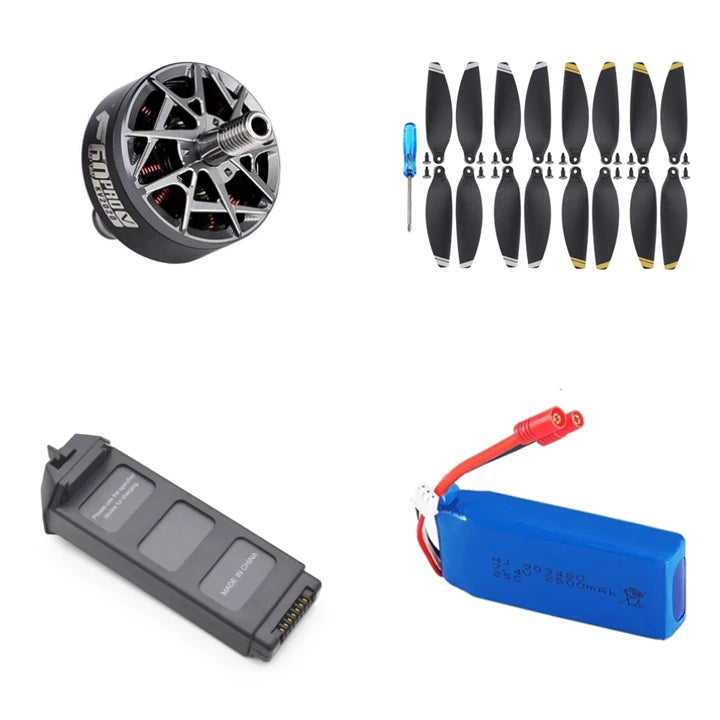SPECIFICATIONS
Wheelbase: Screws
Use: Vehicles & Remote Control Toys
Upgrade Parts/Accessories: Adapter
Tool Supplies: Assembly Category
Size: 1 inch
Remote Control Peripherals/Devices: Receivers
Recommend Age: 14+y
Recommend Age: 12+y
RC Parts & Accs: Transmitters
Quantity: 1 pcs
Origin: Mainland China
Model Number: GEPRC ELRS NanoSE Receiver
Material: Metal
Four-wheel Drive Attributes: Assemblage
For Vehicle Type: Helicopters
Certification: FCC
Certification: WEEE
Certification: RoHS
Certification: CE
Brand Name: GEPRC

Summary
GEPRC ELRS NanoSE receiver is a new generation remote control system developed based on the ExpressLRS open source project. ExpressLRS sets new standartds for long-range connection, low latency and Maximum refresh rate of 500Hz.
GEPRC ELRS NanoSE receiver operates at a frequency of 2.4 GHz. Compared with Nano receiver, NanoSE receiver uses an Integrated SMD ceramic antenna, which further reduces its size while ensuring signal reception, making it more suitable for use on drones with limited space and light weight.
Note:ELRS products now shipping have been pre-flashed with 2.x firmware. 2.x is not compatible with version 1.x, so you need to upgrade the transmitter to 2.x for proper frequency matching.
Specifications
Size:12.1mm*10.4mm
Weight:0.4g
Chips:ESP8285,SX1281
Frequency band:2.4GHz ISM
Refresh rate:25Hz-500Hz
Input voltage:5V
Antenna:Integrated SMD Ceramic Antenna
Features:
Small size
0.4g weight
WIFI Upgrade firmware
ELRS open source project, remote control
Integrated SMD Ceramic Antenna
Maximum refresh rate of 500Hz
The operation is simple
ELRS NanoSE Receiver Diagram

Package Included:
1 x NanoSE receiver
2 x Heat shrink tube
4 x Silicone cable(black, red, yellow, green)
1 x Pin (4pin)
1 x Instruction manual
1 x Sticker
LED Status indication

LED Status Indication: Solid On - indicates connection established, Flash Slowly - no transmission signal detected, Flash Quickly - indicates Wi-Fi mode activated, Flash Double Quickly - binding in progress.
Instructions
ELRS NanoSE receiver and FC connection diagram:

Open Betaflight Configurator, go to "Ports"tab and enable the corresponding UART as a Serial Rx (e.g. UART2 as shown below). Save and restart.

On the"Configuration"tab, click on"Serial-based receiver"on the"Receiver"panel, and select "CRSF"

To use the RX_Serial feature, configure a serial port via the 'Ports' tab and select a serial receiver provider.
Binding
1. The receiver is powered on and off for three consecutive times (within an interval of 1 second);
2. Receiver's LED doing double flashing, indicating that the receiver has entered the binding mode;
3. Make the RF Tx module or radio transmitter enter binding status. Once the LED status changes to solid light, the binding is successful.
FAQ
Q:Why GEPRC ELRS rx is always on and can not work when powered it up?
A:Recently, many users have reported that some F4 flight control Uart 2 ports are wired according to the crsf receiver in the manual, and the ELRS receiver is always on and can not work.
After data inquiry and test, it is determined that for the receiver with ESP chip, if the TX interface is placed at low Vil Mode,
This is not a bug in the firmware.
This problem is well known that some FCs cause the receiver TX line to go low at power on which forces the ESP into bootloader mode, hence the solid LED.
This is not a failure of the flight control or the receiver, but the ELRS project was not popular during the development of this part of the flight control models, and this problem was not optimized. The chips of ELRS and black sheep receiver are different, so the same crsf connection black sheep receiver can be used normally. The subsequent launch of flight control will solve this problem.
There are a couple of potential fixes/workarounds.
In addition, if there is a need for this part of flight control to use ELRS receiver, try the following methods:
1. Power on repeatedly for several times (low efficiency)
2. Remove some components on the flight control (high risk)
3. Add a pull-up resistor to port 2 (reply from the developer)
You can try is to add a small value (300ohm-1kohm) pull up resistor (to 3.3V) to the receiver TX line.
4. Change the version of flight control firmware (this problem occurs in some firmware of version 4.2)
5. ELRS receiver is connected to port 1, which can be used normally (Troubleshooting perfectly)
More details please check the link below:







Related Collections






Explore More Drones & Accessories
-

Camera Drone
Our Camera Drone Collection features a wide range of brands including FIMI,...
-

Drone Accessories
Discover a wide range of drone accessories to enhance flight performance, extend...








